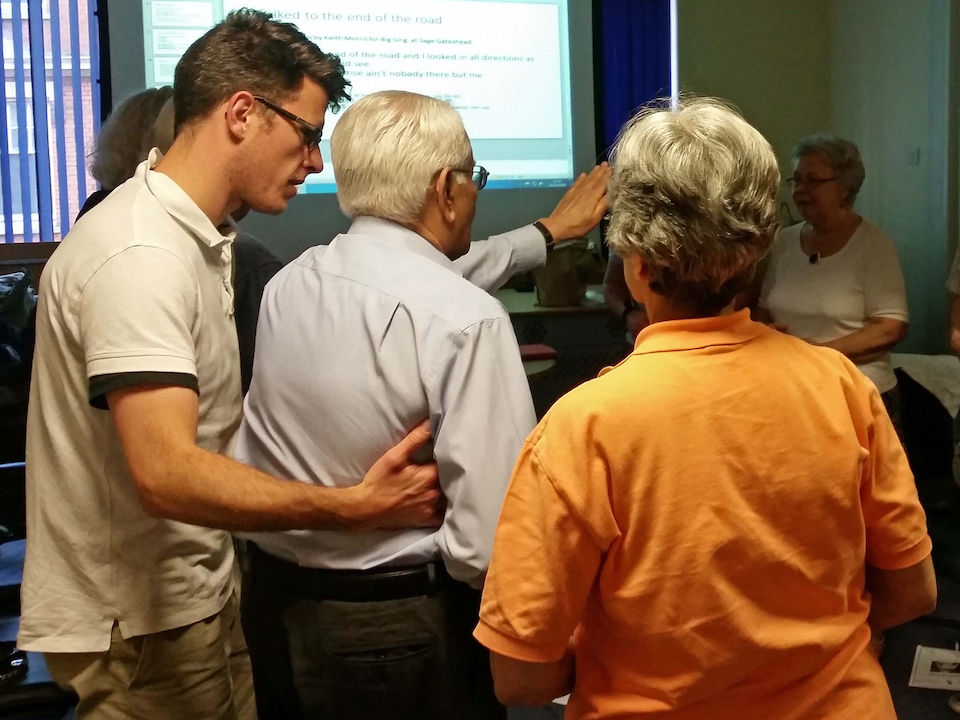In 2007, two pilot singing groups began in Brighton and London exploring whether utilising the breathing techniques used in singing could help people with chronic lung disease. The “Singing for Breathing” group at the Royal Brompton Hospital in London was run by Phoene Cave.
It was inspired by a project in Oldham called “Bronchial Boogie” in which children with asthma were taught how to play brass instruments to improve their respiratory health and self-esteem.
The Brompton programme began with inpatients and then expanded to recruit outpatients for two clinical research studies (Lord VM et al, 2010; Lord VM et al, 2012).
Find out more about this early work from the Life Of Breath, a research project funded by the Wellcome Trust.
Singing for Breathing groups began to develop elsewhere in the UK.
Researchers from the Sidney de Haan Research Centre for Arts and Health in Canterbury set up a number of funded groups in Kent. These led to new research and evaluation (Morrison and Clift, 2013; Skingley & Clift, 2018).
Both studies showed participants value singing in regard to improving the management of their respiratory health and symptoms. Please see Reading and Resources for further research.
In 2014, the British Lung Foundation (BLF) commissioned Phoene to develop and deliver a training programme for singing leaders entitled “Singing for Lung Health”.
Approximately 150 singing leaders have been trained as part of the 12-week BLF funded programme. Of the approximately 100 singing groups for people with lung disease across UK, 65 are run by singing leaders trained and initially funded as part of the BLF Singing for Lung Health programme.
The BLF is now Asthma + Lung UK, and they continue to promote singing for lung health.

